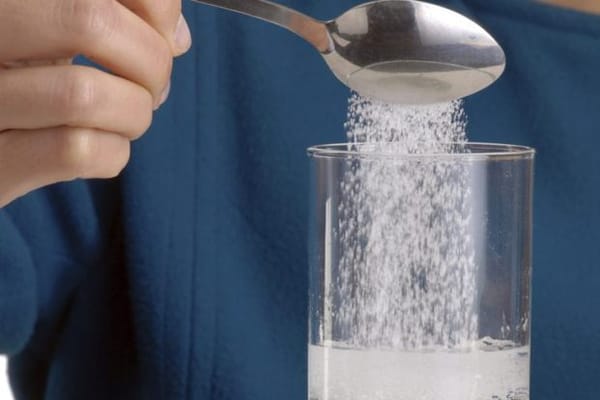Table of contents
Oral Rehydration Salts (ORS) is a medical formulation used to treat dehydration, especially due to diarrhea, vomiting, and excessive sweating.
Composition
It is a mixture of clean water, salt, and sugar that is absorbed in the small intestine to replenish electrolytes and fluids.
The typical formulation for ORS, as recommended by the World Health Organization (WHO), includes:
- Sodium chloride (salt)
- Glucose (sugar)
- Potassium chloride
- Trisodium citrate
How Does ORS Work?
- Electrolytes: These minerals, primarily sodium and potassium, aid in fluid absorption and maintain proper bodily functions. When lost due to dehydration, they need to be replaced.
- Sugar (Glucose): This readily available energy source helps the intestines absorb water and electrolytes more efficiently.
Uses of ORS
- To prevent or treat dehydration caused by diarrhea, which can be life-threatening, especially in children and the elderly.
- To replace fluids lost through sweating in cases of intense physical activity or heatstroke.

Despite its effectiveness and the recommendation for use in cases of dehydration, there is a significant under-prescription of ORS.
Reasons for under-prescription of ORS include:
- Provider Misconceptions: Healthcare providers incorrectly believe that patients do not want ORS, perhaps due to its taste or the perception that it is not a real medicine.
- Financial Incentives: There is a financial motive to prescribe more profitable medications over ORS, as antibiotics and other treatments can be more expensive and thus potentially generate more profit for the provider or the healthcare facility.
- Stock-outs: There are instances where ORS is not available due to stock-outs, leading to under-prescription.
Programs to promote the use of ORS
- National Health Mission (NHM): Under this program, there are initiatives to promote ORS along with Zinc supplementation for the management of diarrhea in children. The government provides ORS packets and Zinc tablets free of cost at public health facilities.
- Integrated Child Development Services (ICDS): This program works on improving the nutritional status of children and also provides health education to mothers, which includes the promotion of ORS for treating dehydration caused by diarrhea.
- Intensified Diarrhea Control Fortnight (IDCF): Launched by the Ministry of Health and Family Welfare, this initiative focuses on intensifying efforts to reduce child deaths due to diarrhea. The fortnight observes activities that promote ORS and Zinc therapy.
A study involving over 2,000 providers across 253 towns in Karnataka and Bihar in India found that these provider misconceptions accounted for 42% of ORS under-prescription, while stock-outs and financial incentives were lesser factors.
The study also noted that more providers prescribed ORS when there was an expressed preference for it by the patients or their caregivers.
Previous Post